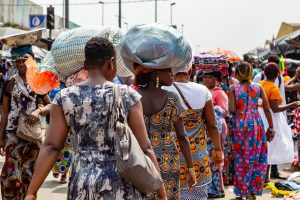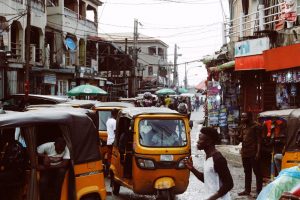People with disabilities often face many challenges in life, such as lack of finances to run their businesses, mobility challenges, lack of disability-friendly resources at school and workplaces, etc. Given the right support, disabled people can be independent, achieve success, and lead a dignified life in society. This article will look at funding/grants opportunities for people with disabilities in Zambia, South Africa, Kenya, Nigeria, and Namibia.
Funding for Disabled in Zambia
The Zambia Agency for Persons with Disabilities (ZAPD) is a quasi-government institution established under the Persons with Disabilities Act 6 of 2012. Its main aim is to promote education for people with disabilities by establishing the Education Support Fund. The Agency works with the Ministry of Community Development and Social Services, the Ministry of Health, the Ministry of General Education, Ministry of Higher Education and Technology, NGOs, DPOs, etc.
The education fund supports primary school students (those in boarding school only), secondary school, and undergraduate students. ZAPD aims to ensure that people with disabilities have access to education to help them develop their human potential to the maximum.
Eligibility Criteria for the Education Support Fund
To qualify for education support, applicants must meet the following criteria.
- Must be Zambian by birth or descent
- You must have a birth certificate or National Registration Card (NRC), or any other document showing that you are Zambian
- You must attach a letter of admission from a recognized learning institution in Zambia
- You must have a certificate of registration from ZAPD
- The household from which you come from must be certified incapacitated by the Department of Social Welfare
- Your monthly income or your parents’ income must be less than K3, 000
- People with a severe case of disability are given priority
- In case you relocate to another province, the support might cease. You must give a referral letter explaining the kind of support you received from your previous province
- If you fail and repeat a class or semester, you will be required to pay the fees for the year/semester you will be repeating
The Department of Rehabilitation and Research distributes application forms for the Education Support Fund to Provincial Coordinators. Students will then make their applications through the Provincial Coordinators. Application dates are usually advertised on print and electronic media, through emails, websites, text messages, newsletters, or notice boards.
Disability Grants in Kenya
People living with disabilities in Kenya account for between 2.2% and 15% of the population. Kenya’s government has established specific social protection, education, and economic empowerment programmes to support people with disabilities in the country. Several departments at the national level are making these programmes a success. The following are disability grants in Kenya.
State Department for Social Protection
The State Department for Social Protection allocated Ksh. 9 billion between the Financial Year 2016/17 and Financial Year 2020/21 for programmes that promote inclusion and empowerment of people with disabilities. These funds were directed to the Cash Transfer for Persons with Severe Disabilities (PWSD-CT) Scheme, the National Development Fund for Persons with Disabilities (NDFPWD), and vocational rehabilitation and social development services.
State Department for Vocational and Technical Training
Between the Financial Year 2016/17 and Financial Year 2020/21, the State Department for Vocational and Technical Training set aside Ksh. 961 million for special needs education at tertiary level. These funds were to be used to purchase equipment and expand infrastructure in vocational and technical institutions.
Office of the President
The Office of the President increased budget allocations to the National Fund for the Disabled of Kenya (NFDK) from Ksh. 100 million in the Financial Year 2016/17 to Ksh. 550 million in the first supplementary budget of the Financial Year 2019/20.
State Department for Early Learning and Basic Education
Children with disabilities must have access to education, just like other children in the country. This will be made possible if special needs education is funded adequately. Between the Financial Year 2016/17 and Financial Year 2020/21, the State Department for Early Learning and Basic Education allocated Ksh. 4.7 billion for primary special needs education and Ksh. 1 billion for secondary special needs education.
Disability Grants in Namibia
The government of Namibia supports people with disabilities. The Ministry of Labour and Social Welfare is mandated to remit a Disability Grant to people with disabilities under the National Pension Act 10, 1992. The grant is remitted to those who have attained the age of 16-59 years and have been certified as disabled by a State Medical Officer. Beneficiaries must be permanent residents in Namibia.
Documents Required for Disability Grants in Namibia
You will need to submit several documents at the nearest Pension Office during your application, where an official will attest to your application. You will then be issued with a receipt of acknowledgment.
The following are the documents required for a successful application.
- Birth certificate
- An Identification document
- Women must submit a marriage certificate if married
- Permanent Residence Certificate and Citizenship Certificate for non-Namibians
Funding for Disabled in South Africa
The South African government provides disability grants to people with disabilities through the Department of Social Development. People who qualify for these grants are either permanently unable to work or those temporarily unable to work for more than 6 months due to a mental or physical disability.
Qualifications for a Disability Grant in South Africa
You can make an application at the nearest South African Social Security Agency (SASSA) office. The following are qualifications for a Disability Grant in South Africa.
- You must be a South African citizen, permanent resident, or refugee and living in South Africa at the time of application
- You must have a valid South African ID
- You must be between 18 and 59 years old
- You will need to provide a medical report not older than 3 months at the date of application that confirms the disability
- You must not be cared for in a state institution
- You must not be a recipient of another grant
Documents Required
You will be required to provide the following documents at the time of application.
- A medical report and an assessment report from a medical officer recognized by SASSA that confirms your disability
- Proof of residence
- You will need to provide bank statements for the past 3 months
- Provide an ID, and if you don’t have one, you must complete an affidavit on a standard SASSA format in the presence of a Commissioner of Oaths (must not be a SASSA official). You must also bring a sworn statement by a reputable person verifying your name and age. The SASSA official attending to you will need to take your fingerprints. While your application is under processing, you will need to visit the Department of Home Affairs to apply for an ID, failure to which your grant will be suspended
- Proof of income or dividends, if any, and proof of private pension (if any)
- Proof of marital status if applicable
- If your spouse died within the last five years, you will be required to provide a copy of the will and the first and final liquidation and distribution accounts
- You will need to provide proof of assets, including the municipal value of your property
- You will be required to provide an Unemployment Insurance Fund or a discharge certificate from your previous workplace
If your application is approved, your money will be paid through cash at a specific pay point, as an electronic deposit into your bank account, or an institution not funded by the state. You will choose the most convenient payment method. The maximum amount you will receive per month is R1860.
Funding for Disabled in Nigeria
Nigeria’s President, Muhammadu Buhari, signed into law the Discrimination Against Persons with Disabilities (Prohibition) Act, 2018, on January 23, 2019. This law prohibits any discrimination based on disability. It aimed to support people with disabilities, including modifying buildings and vehicles to make them accessible to people with disabilities. The law was also ensures that people with disabilities have access to housing, healthcare, and education.
Recently, the Ministry of Humanitarian Affairs, Disaster Management, and Social Development in Nigeria is planning to collaborate with USAID and the World Bank to finance a disability and women empowerment programme. The programme will be delivered through conditional cash transfers to cater to the disabled and most vulnerable women in the country.
You should regularly check with the Ministry of Humanitarian Affairs, Disaster Management, and Social Development to know when the disability and women empowerment programme will start.
Final Thoughts
Most people with disabilities live in poverty because most of their needs are often excluded from policymaking and service provision. African governments need to create policies that will encourage the participation of people with disabilities in socio-economic activities and ensure they are part of a country’s social and economic development plans. This will help them grow and become independent.







